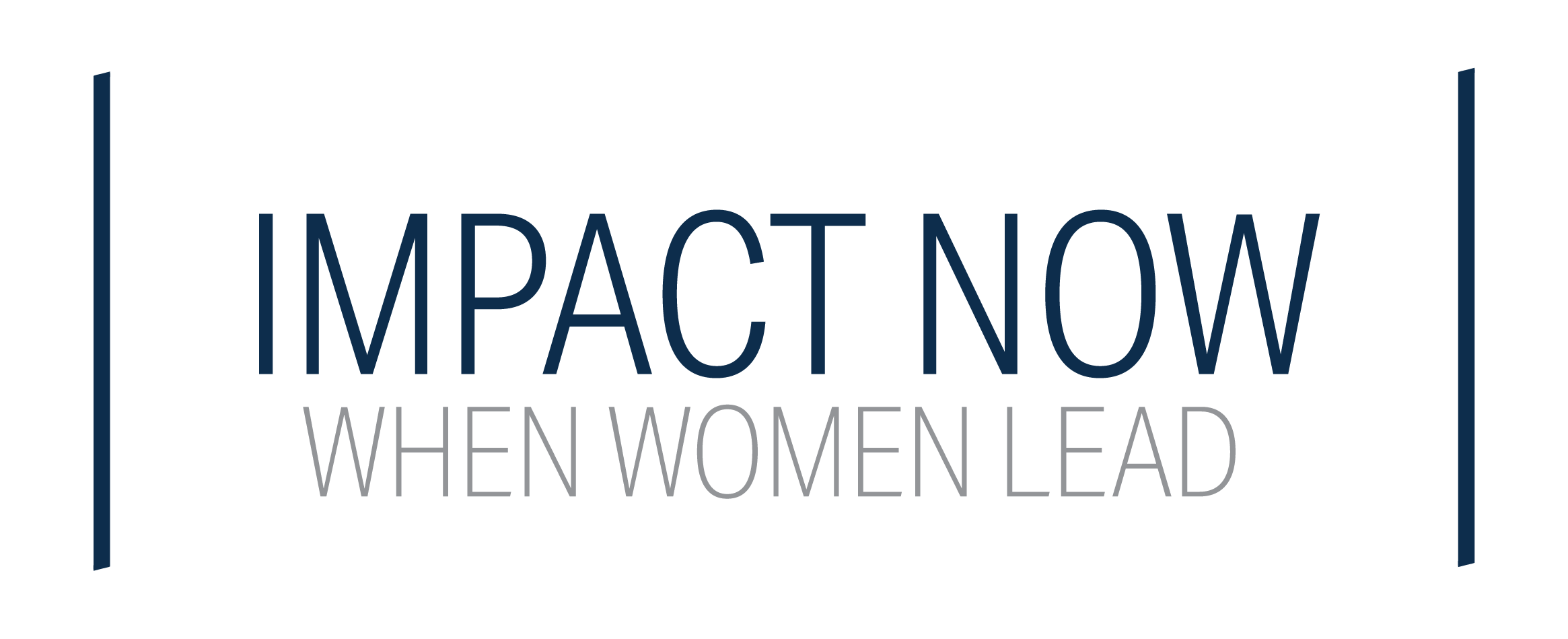Thank you for being an integral part of the Impact Now community. We are excited to share about what’s ahead at Impact Now and extend an invitation to the year-end giving opportunity.
Expressing Gratitude for Giving Tuesday
A resounding thank you to everyone who contributed to our Giving Tuesday campaign, When Women Lead, Communities Thrive. As this was our first Giving Tuesday campaign, we set a modest goal of $2000. We were delighted to exceed that amount by $50. The generosity of so many people enables us to provide programming and coaching for women leaders in for-impact organizations.
Design Thinking: A Path to Impactful Programming
Several years ago I was introduced to Design Thinking, a human-center, iterative, problem-solving approach that puts the client or customer at the center. Design Thinking is a non-linear approach to problem-solving that anchors on understanding the needs and perspectives of the people the organization serves.
The first step in Design Thinking is to fully understand the problem that the clients have, and fully understand the clients’ needs and desires. It’s getting clear on “What is” the current situation, need, or problem. (Check out this video about how Design Thinking was used to make a better walker for people with mobility challenges.)
The next step is to imagine all the possibilities and pieces that could solve the problem. “What if” there were no limits to resources, time, or money? What could be possible?
After imaging the possibilities, the next step in the process is to develop a prototype. You put the best pieces of the possibilities together and test them out to see, “What wows?”
Once you have created a prototype, you test, refine, and iterate to get to “What wins?”
In the for-impact world, we often start with what we think will solve “the problem.” We think we know what’s best for the client. We figure it all out, develop a plan, and put it to work. Sometimes our solutions work.
Too many times our solutions miss the mark.
Why? Because we haven’t spent time with the clients to fully understand the situation, the real problem or the real challenge.
At Impact Now, we’re beginning to use Design Thinking to shape services that better meet our clients’ needs. The first place we are doing this is with a team at the Université Chrétienne Bilingue du Congo (UCBC) in Beni, DRC.
Meeting Real Leadership Development Needs
For a variety of reasons—cultural, economic, social—women leaders in for-impact organizations in the Beni area and beyond are unable to fulfill their leadership aspirations. I thought a leadership development program specifically for women leaders in the area would solve the problem. In fact, I proposed to colleagues at UCBC that we develop a 12-month, cohort-based, leadership development program.
It soon became clear that before we could begin planning out an entire 12-month program, we needed to empathize with the women leaders we want to serve. We needed to know from them what stands in their way. We needed to hear about their challenges. They needed to tell us how we, as educators and professional development specialists, could best support them.
So that’s what we’re doing. In the next two weeks, the team in Beni will convene a group of women whom we want to support. The team will listen to these women describe their aspirations, their vision for themselves, the challenges they face in their roles as leaders, and how we can best serve them.
Once we hear from them, we’ll draft possibilities, then engage our ideal clients again. We’ll test out ideas and get feedback. We will make adjustments, try again, and get feedback, so that, in the end, we serve these women leaders in a way that truly meets their needs.
Year-End Giving Opportunity: Join Us in Shaping the Future
As we approach the end of the year, we invite you to be a part of the journey we are taking with our UCBC colleagues. Please make a year-end donation to Impact Now, because When Women Lead, Communities Thrive!


